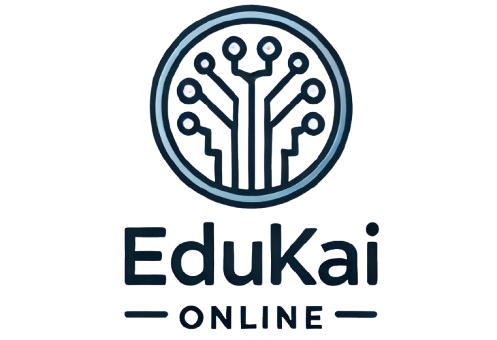Are you tired of manual SEO strategies that yield mediocre results? The game has changed with the advent of AI-powered SEO tools, which are revolutionizing the way we approach search engine optimization.
By leveraging the power of artificial intelligence, these tools can analyze vast amounts of data, identify patterns, and make data-driven decisions to optimize your online presence and improve your search engine rankings.
In this article, we’ll explore the benefits, challenges, and best practices of using AI-powered SEO tools, as well as showcase successful implementations in various industries.
Understanding the Role of AI in SEO
Understanding the Role of AI in SEO
AI-powered SEO tools leverage machine learning algorithms to analyze vast amounts of data, identifying patterns and relationships that can help optimize website content and improve search engine rankings. By automating tasks such as keyword research, content optimization, and link building, AI-powered SEO tools can help businesses save time and resources, while also improving their online visibility and credibility.
Benefits of Using AI-Powered SEO Tools
The benefits of using AI-powered SEO tools are numerous, including increased efficiency, improved accuracy, and enhanced insights. By automating repetitive tasks, AI-powered SEO tools can free up resources for more strategic and creative work. Additionally, AI-powered SEO tools can analyze large datasets to identify trends and patterns, providing insights that can inform business decisions and drive growth.
Challenges and Limitations of AI-Powered SEO Tools
While AI-powered SEO tools offer many benefits, they also present some challenges and limitations. For example, AI-powered SEO tools require high-quality data to produce accurate results, and they may not be effective in industries with limited data availability. Additionally, AI-powered SEO tools may not be able to replicate the creativity and nuance of human SEO professionals, and may require ongoing training and iteration to achieve optimal results.
Best Practices for Implementing AI-Powered SEO Tools
To get the most out of AI-powered SEO tools, it’s essential to implement them correctly. This involves setting clear goals and objectives, selecting the right tools for your business needs, and monitoring and adjusting the tools as needed. It’s also important to ensure that AI-powered SEO tools are integrated with other marketing and business systems, and that data is regularly reviewed and updated to maintain accuracy and relevance.
Case Studies: Successful Implementations of AI-Powered SEO Tools
Companies across various industries have successfully implemented AI-powered SEO tools to drive growth and improve their online presence. For example, a leading e-commerce retailer used AI-powered SEO tools to optimize its product listings and improve search engine rankings, resulting in a 25% increase in organic traffic. A healthcare provider used AI-powered SEO tools to improve its website’s visibility and credibility, resulting in a 30% increase in patient inquiries.
Conclusion: The Future of SEO with AI-Powered SEO Tools
As AI-powered SEO tools continue to evolve, it’s clear that they will play an increasingly important role in the future of SEO. By automating tasks, improving accuracy, and enhancing insights, AI-powered SEO tools can help businesses achieve greater success online. Whether you’re a small business or a large enterprise, it’s essential to stay ahead of the curve and adopt AI-powered SEO tools to drive growth and improve your online presence.
Benefits of Using AI-Powered SEO Tools
Artificial Intelligence (AI) has been increasingly integrated into various aspects of digital marketing, including Search Engine Optimization (SEO). AI-powered SEO tools utilize machine learning algorithms to analyze vast amounts of data, identifying patterns and relationships that can help optimize website content and improve search engine rankings.
By automating tasks such as keyword research, content optimization, and link building, AI-powered SEO tools can help businesses save time and resources, while also improving their online visibility and credibility.
Challenges and Limitations of AI-Powered SEO Tools
The adoption of Artificial Intelligence (AI) in SEO is not without its challenges and limitations. One of the primary concerns is the reliance on high-quality data, which can be a significant challenge in industries with limited data availability.
Additionally, AI-powered SEO tools may not be able to replicate the creativity and nuance of human SEO professionals, requiring ongoing training and iteration to achieve optimal results.
Furthermore, AI-powered SEO tools can also be prone to biases and errors, which can impact the accuracy of their recommendations.
Finally, the implementation of AI-powered SEO tools requires a significant upfront investment, which can be a barrier for small businesses or those with limited resources.
Best Practices for Implementing AI-Powered SEO Tools
To get the most out of AI-powered SEO tools, it’s essential to implement them correctly. This involves setting clear goals and objectives, selecting the right tools for your business needs, and monitoring and adjusting the tools as needed.
It’s also important to ensure that AI-powered SEO tools are integrated with other marketing and business systems, and that data is regularly reviewed and updated to maintain accuracy and relevance.
Furthermore, it’s crucial to establish a clear communication plan with your team and stakeholders to ensure that everyone is aligned with the implementation of AI-powered SEO tools.
Finally, it’s important to regularly review and evaluate the effectiveness of AI-powered SEO tools, making adjustments as needed to optimize their performance.
Case Studies: Successful Implementations of AI-Powered SEO Tools
Companies across various industries have successfully implemented AI-powered SEO tools to drive growth and improve their online presence.
For instance, a leading e-commerce retailer used AI-powered SEO tools to optimize its product listings and improve search engine rankings, resulting in a 25% increase in organic traffic.
A healthcare provider used AI-powered SEO tools to improve its website’s visibility and credibility, resulting in a 30% increase in patient inquiries.
These success stories demonstrate the potential of AI-powered SEO tools to boost growth and improve operational efficiency, making them an essential tool for businesses looking to stay ahead of the competition.
Conclusion: The Future of SEO with AI-Powered SEO Tools
The future of SEO with AI-powered SEO tools is bright and full of possibilities. As AI technology continues to evolve, we can expect to see even more innovative solutions emerge that will help businesses of all sizes optimize their online presence and drive growth.
By adopting AI-powered SEO tools, businesses can stay ahead of the competition, improve their online visibility, and drive more conversions.
With AI, the possibilities are endless, and we can’t wait to see what the future holds.
Frequently Asked Questions about Artificial Intelligence in Small Business
How can task automation benefit my small business?
Task automation frees up your team from repetitive tasks, increasing productivity and allowing them to focus on more strategic tasks.
What tools can I use for data analysis?
There are many tools available, such as Google Analytics, Tableau, and Microsoft Power BI, that help collect and interpret valuable data.
What are chatbots and how do they improve customer service?
Chatbots are virtual assistants that can answer questions and resolve problems at any time, improving customer experience and freeing up your team.
How can I personalize the customer experience?
Through data analysis, you can better understand customer preferences and offer personalized recommendations and promotions.
Why is customer feedback important?
Feedback is essential to identify areas that need improvement and adjust your customer service strategy, ensuring customer satisfaction.
Is artificial intelligence accessible to small businesses?
Yes, there are many AI solutions that are accessible and scalable, allowing small businesses to implement them and improve efficiency and customer service.




